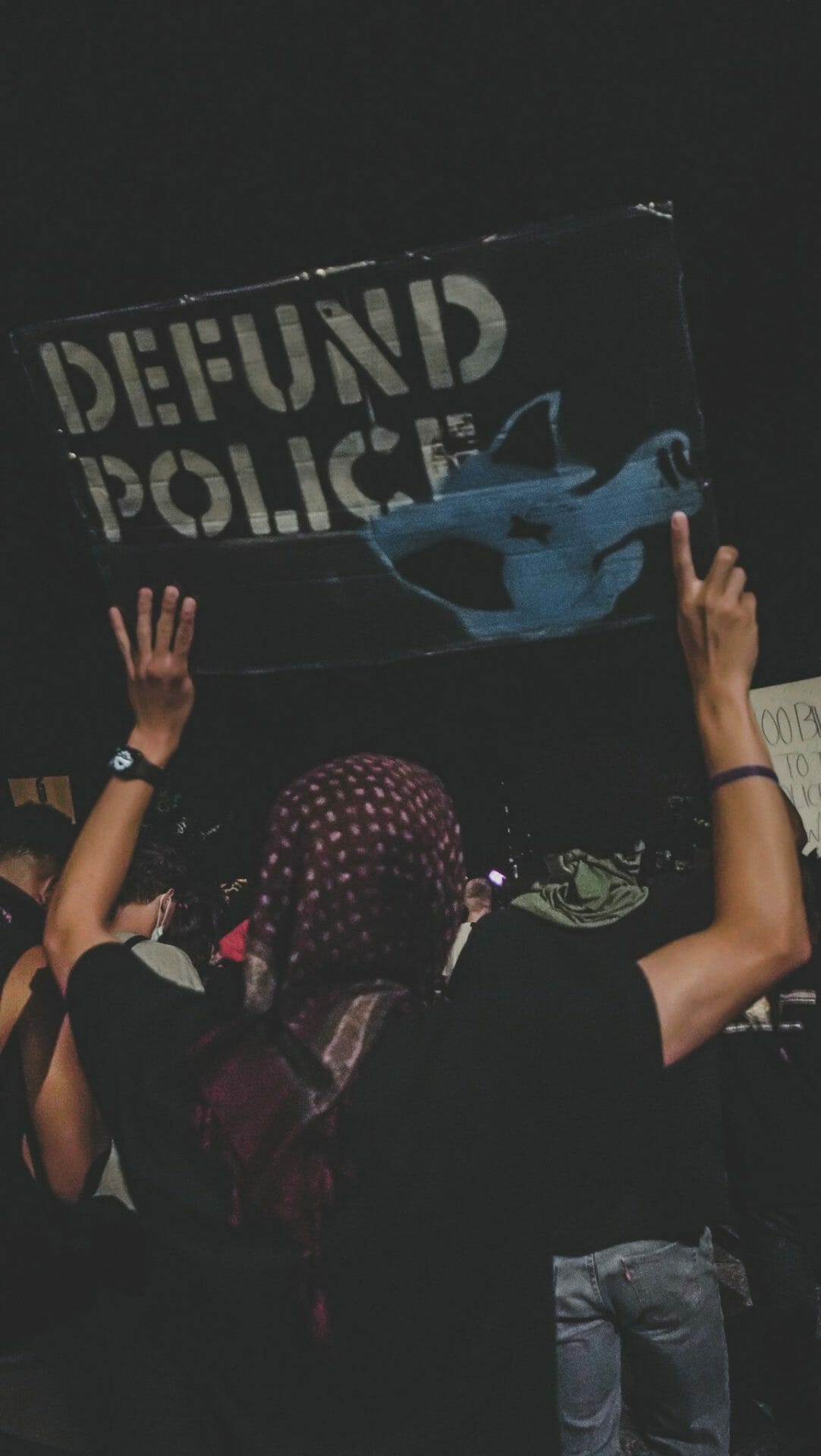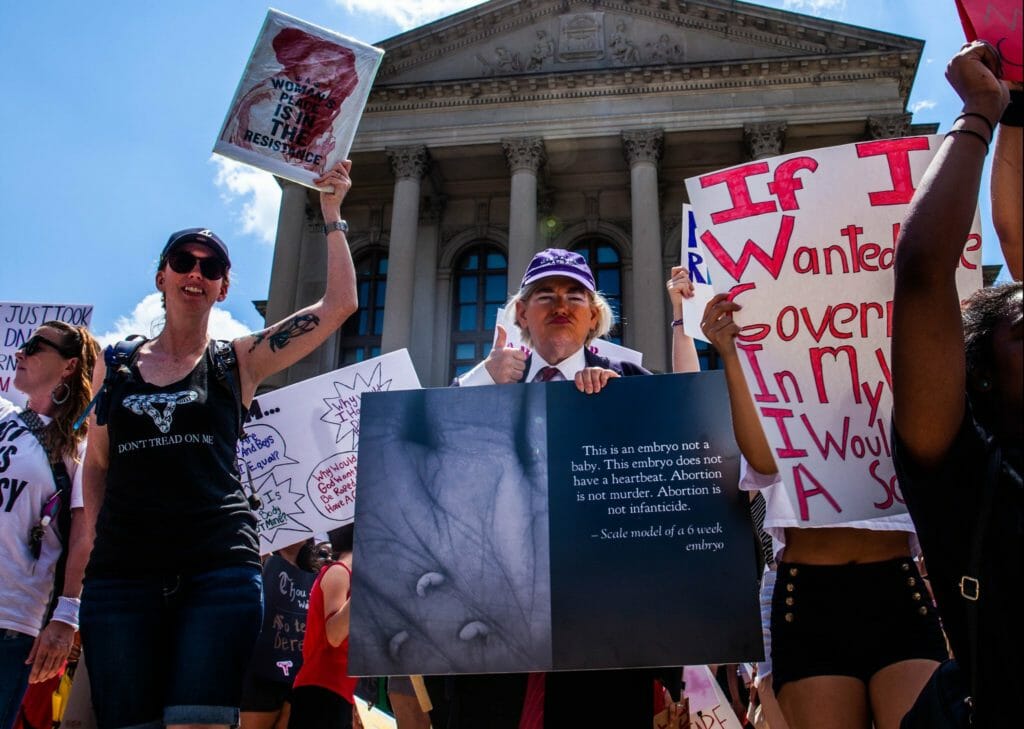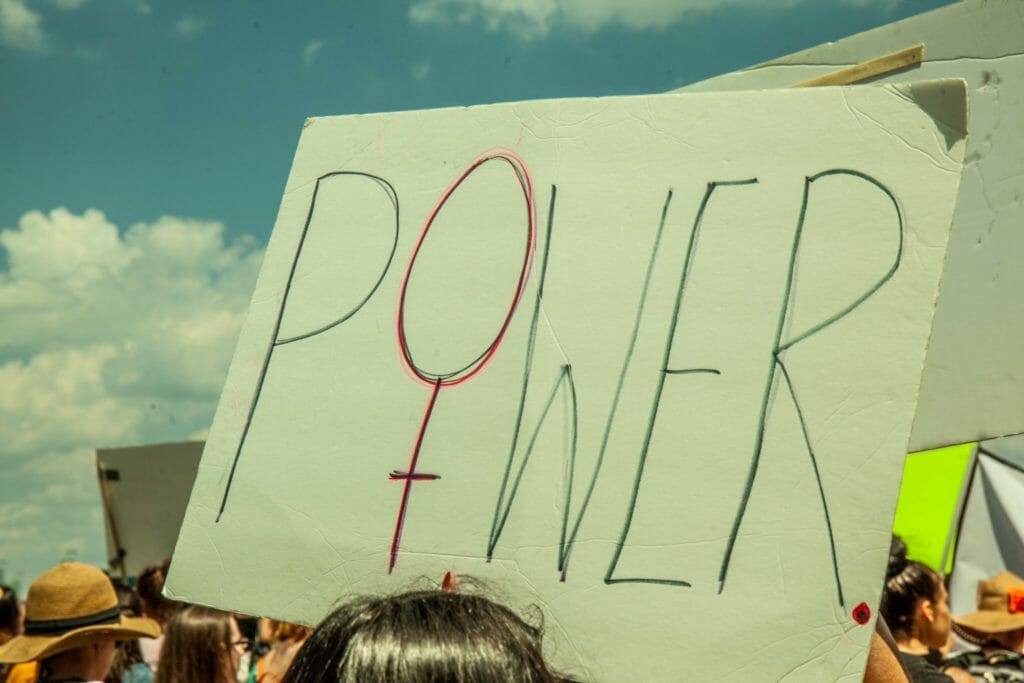An editorialized rundown of events pertaining to the Black Lives Matter movement in Atlanta
This past week was a bit of whirlwind and there’s a lot of ground to cover. We’ve compiled the highlights from this weekend into one place along with a bit of perspective. Hang on tight.

Georgia’s legislative session
This year is a critical year for politics across the board, and Georgia is no exception. In fact, Georgia has been declared a swing state in this year\’s presidential election. A lot of power plays took place in this year’s legislative session and an array of important bills were introduced. Here are the highlights of the session\’s results:
Georgia fiscal year 2021 budget
On Fri., June 26, the House and the Senate approved this year’s budget, which begins on Wed., July 1.
All the following statistics were reported by Georgia Budget and Policy Institute and can be found in greater detail here.
Positives
This year’s budget includes a $12.6 million cut from private prisons and state prisons received an overall $17.7 million cut. Another $3 million was cut in funds for inmate transportation. This is a step in the right direction, particularly to those fighting on the frontlines for abolition and reform in our police and prison systems.
The state budget also includes increases in community health, with the state’s total funding increased by $178 million, “mostly to account for higher projected growth for Medicaid.” Here, $19.7 million was added to provide six months of Medicaid coverage for new mothers, but is currently pending federal approval; $12 million was added to increase funding for Rural Hospital Stabilization grants; and many cuts were restored to the Georgia Board of Health Care Workforce with no cuts to medical school operating grants.
Negatives
This year’s budget contains an array of massive cuts to essential programs and services, including K-12 public education, higher education, behavioral health and developmental disabilities, public health, and human services. Perhaps most notable is the $950 million cut from the Quality Basic Education program, which dictates the bulk of state spending for K-12 public education.
The massive budget cuts remain in higher education, as well, with $242 million cut from schools in the University System of Georgia and $36 million cut to schools in the Technical College System of Georgia. This could “result in downsizing and elimination of programs, instructional site closures, elimination of student success initiatives, and more.”
Where we noted changes from the initial proposal to what was passed
According to a newsletter from House Rep. Bee Nguyen (District 89) on June 22, the cut to the Quality Basic Education was initially slated to be $1.05 billion. It also included a $25 million cut from funding for school counselors and a $15 million cut from pupil transportation. The final budget maintained the $25 million cut from school counselors’ funding, but added $927,000 to pupil transportation. An additional $8.8 million was added to the Governor’s Office of Student Achievement and $142 million was added for enrollment growth.
The initial proposal included a $27.4 million cut from the Department of Public Health, but that was reduced to a $8 million cut. Funding was also restored for grants to local health departments. The cut from child and adolescent mental health services saw a slight decrease from $24.1 million to $22.7 million.
Other legislation
We had our eye on a few bills that were introduced, specifically those pertaining to hate crimes in Georgia, voter suppression, and signature bonds. These are the results of those we followed closely.
HB 426, aka “Georgia’s Hate Crime Bill”: Passed and signed by Gov. Kemp
On Fri., June 26, Gov. Kemp signed Georgia’s first hate crimes legislation. Until Friday, Georgia was one in four states to not have any hate crimes legislation that made malice-driven acts committed on the basis of race, color, religion, national origin, sex, sexual orientation, gender, mental disability, or physical disability more punishable by law. HB 426 creates a protected class for the areas listed.
HB 426 was introduced on Feb. 21, two days before 25-year-old Ahmaud Arbery was killed by Travis and Gregory McMichael in Brunswick, Ga. (More details on the status of the repeal of Georgia’s 1863 citizen’s arrest law below.) HB 426\’s passing rightfully received more pressure since Arbery’s death and the uprising of the Black Lives Matter protests across the state. After George Floyd was killed by Minneapolis police on May 25, Speaker David Ralston stated that he was “more committed to a hate-crimes law than ever.”
This is historical, however, feelings of celebration are a bit overshadowed by Kemp’s pending signature of HB 838. HB 426 was amended by the Senate to include language that made the police a protected class in addition to those listed above. This received major opposition and that same language was then swiftly moved into HB 838. Wanda Cooper-Jones, Arbery’s mother, didn’t even attend the signing of HB 426 in a gesture of opposition to HB 838.
HB 838: Passed and pending signature from Gov. Kemp
In regards to her decision to not attend the public signing of HB 426, Cooper-Jones stated, “Though we stand in full support of all law enforcement, we believe that HB 838 is more dangerous to our community than HB 426 is good. To see the legislature prioritize HB 838 instead of repealing citizen’s arrest is heartbreaking and does not do justice for my son.”
That’s how serious it is. Essentially, when the Republicans couldn’t get what they wanted in HB 426, they moved the police protection clause into HB 838.
According to one of our sources in Atlanta City Council, Rep. Sandra Scott (D) stated that HB 838 was the “worst bill of the legislative session.” She further explained that, “HB 838 is the Lt. Gov. and Governor’s Hate Crime Bill. They passed this bill before they passed HB 426. They wanted to send us a message: ‘We got our Hate Crime Bill with HB 838, so you all can have HB 426.’”
You can still write Kemp to demand he veto the bill through the contact form on the Governor\’s website here. While there is admittedly not a great chance that Kemp will veto, as it is partially his bill and it is backed by Republicans, there is the chance that HB 838 will see its day in a higher court. In which case, it would help build a case to see the public\’s opposition towards this bill.
SB 402: Passed
SB 402, introduced by a committee of Georgia senators in February, prevents signature bonds for people accused of violent crimes. ACLU GA staunchly opposed this bill, stating it “would have a disproportionately negative impact on poor Georgians and Georgians of color who often can’t afford to come up with bail money. Meanwhile, wealthy people accused of the same crime can buy their freedom and return home.”
This is a Republican bill sponsored by Randy Robertson, John Albers, Butch Miller, Renee Unterman, Chuck Payne, and Steve Gooch. It received a 46-8 vote in the Senate and a 99-68 vote in the House.
SB 463: Withdrawn
This is a major victory. SB 463 was deemed “Georgia’s anti-voting rights bill” by voter protection group Fair Fight Action, because it sought to remove responsibility from the State Elections Board and Secretary of State to ensure counties complied with federal laws. This shift would have placed the responsibility on already under-resourced counties. Further, this bill was a major attack on absentee ballots — yes, yes, even during the global pandemic — and called for fewer voting machines as well as more polling location closures.
You can find our breaking news coverage from the bill’s introduction on March 4 here.
This bill was voted down on Thurs., June 25. At the risk of editorializing: fuck yes.
What we need to keep an eye on
HB 994
Known as Georgia’s new “gang activity bill”, HB 994 expands on the definition of “criminal gang activity” and allows for longer sentences if such activity is deemed “gang related.”
ACLU GA opposes this bill, stating that, “instead of meaningfully working to address why young people join gangs, this bill calls for utilizing excessively harsh and unproven tactics” and that it “increases the criminalization of young people in Georgia.” Their statement goes on to explain this bill would “likely worsen Georgia’s mass incarceration problem, especially for Black and Brown people.”
It is also opposed by the Southern Center for Human Rights and Gerald Griggs of the NAACP stated, “It seems as if we’re going backwards on criminal justice reform.”
The AJC reported that Kemp and his allies have said the “legislation gives police and law enforcement new tools to go after gang members who are causing trouble around Georgia.” Sounds racist. As. Hell. To be clear: this is Kemp’s bill.
It shouldn’t take much to see that HB 994 is another means to further criminalize Black and Brown people, but it makes an especially major feat in further criminalizing children and preventing any real solution in our state’s communities through greater resources in mental health, education, etc. The bill is specifically targeted to address criminal gang activities of teens aged 13 to 17 and would allow prosecutors to request moving gang-related cases to the adult courtroom, as reported by the Atlanta Journal-Constitution. The bill would add new crimes, including pandering and “any gang crime that involves a sex offense or an attempt to commit a sex offense.” Well, what the hell does that mean?
It means that HB 994, in all its vagueness, would leave many acts up to interpretation for law enforcement officers who are already under-trained, underqualified, and prone to racial bias. As activists in the Black Lives Matter movement and others have noted, the police simply wear too many hats. This puts the lives and future of children in our state’s Black and Brown communities in law enforcement and prosecutors’ hands — and during a time when we saw budget cuts to adolescent mental health services and public education, along with plans to cut the state’s public defenders’ budget.
This bill is sponsored by Republican senators Bert Reeves, Barry Fleming, Chuck Efstration, Andy Welch, and Ginny Ehrhart. It was approved by the House on March 13, the day before Gov. Kemp declared a public health state of emergency, and is pending to be moved to the Senate for consideration.
The repealing of Georgia’s citizen arrest law
The motion to repeal Georgia’s 1863 citizen arrest law arrived after Ahmaud Arbery’s death on Feb. 23, in Brunswick, Ga., when Travis and Gregory McMichael told police after the shooting that they believed Arbery was “involved in a string of area break-ins.”
The law was cited in the case by a prosecutor in an attempt to justify the killing. Under the law, a private citizen can arrest someone if a crime is committed that the citizen has immediate knowledge of.
As of June 18, the motion to repeal remains in the House.
Mayor Keisha Lance Bottoms’ three administrative orders
There’s a lot to unpack with this one, so bear with us. Mayor Bottoms’ signed three administrative orders on Thurs., June 25, after receiving recommendations from Use of Force Advisory Council to review the Atlanta Police Department’s use of force policies. The council was established on June 10.
She received 10 recommendations; the other seven are pending further review. Here are the three she approved, according to the AJC, along with some further analysis.
Body cams
The first order signed by Bottoms directs the chief of police to “identify policies and procedural changes that could improve the percentage of officers complying with wearing and turning on body cameras during arrest.” That level is reportedly already at 94%, according to the council’s news release.
Something to consider: If the level of officers who comply with wearing and turning on body cameras during arrest is already at 94%, is it possible that this is not an area that needs reform or more funding, as it is slated in the city’s FY21 budget? Further, if that is the current level of compliance within the police department and Black men and women are still being mistreated, harassed, and killed by police, wouldn’t that imply that body cams don’t do anything to protect Black lives? Is there a chance that no matter how much technology or new equipment you throw onto our police officers, they are bound to repeat the same behaviors?
Here, we must cite the most recent police killing of Rayshard Brooks to illustrate the fact that body cams are futile when it comes to saving lives. It was later discovered that the man who killed Brooks, Officer Rolfe, had previously received a reprimanding for use of force involving a firearm. Body cams also didn’t prevent the police assault of Messiah Young and Taniyah Pilgrim on May 30, when police officers ambushed their vehicle, slashed their tires, smashed the windows, and brutally Tased them to the point of hospitalization before arresting them. Additionally, we already know that officers can simply choose to not use their body cams, as we saw in the case of Oscar Cain.
Moreover, the general public has been regularly doused with body cam videos of police brutality online and we have yet to see any officers charged and convicted for their actions. The body cams simply don’t mean anything, unless they help pave the way for justice. Which, as we’ve seen over the years, they don’t.
Witness footage of use-of-force by officers
This order directs the department’s chief information officer to “develop a platform in which the public can submit witness recordings of apparent use-of-force violations,” according to AJC News. The official release goes on to say that these submissions would be incorporated into investigations “ensuring the public recordings are included with APD footage in decisions.”
The main question with this one is, how is this not a thing already? Aren’t we essentially already compiling witness videos on social media? Nothing about this order feels particularly groundbreaking, especially since the trust between the police and the people is becoming more and more diminished in the current climate. It also feeds us back into the claim in regards to bodycam footage: if footage from body cams worn by officers themselves don’t lead to fair charges and convictions, what makes any of us think our own videos in the hands of police would?
The Atlanta Citizen Review Board
According to the advisory council\’s official release, this order directs the chief of staff and city attorney to work with the ACRB to “identify measures to further strengthen the organization.” These measures can be legislative, budgetary, and operational. Bottoms also went as far as to issue a letter to the ACRB “highlighting the importance of their independent perspective and critical role in maintaining accountability.”
Skrrrt. Okay, hold up. We looked into the ACRB, which has complaints against the APD going as far back as 2012 publicly published on its website. After doing some digging, we found that there is a holding pattern between the ACRB and the chief of police which typically goes something like this:
The ACRB receives a complaint, conducts its own investigation, and records its findings. Allegations are divided into different categories, including conduct, violation of standard operating procedures, excessive force, false imprisonment, abusive language, etc. The board sends a letter to the chief of police and then the chief issues a response. Of all the cases we looked at (disclaimer: we did not look at all of them, but we looked at enough to establish a pattern), we saw that the police chief either dismisses the ACRB’s investigation, denies the findings while citing the APD’s own investigation, agrees to very minor consequences for the violations in the form of a verbal reprimand or more training hours, or doesn’t respond at all.
Here is one case that was filed by the ACRB on March 14, 2019, which alleged one officer “unlawfully detained a woman, failed to run her driver’s license in a timely manner, failed to timely provide medical treatment and follow police procedure for arrestees transported to Grady Hospital, failed to read her Miranda rights, failed to submit personal belongings to Property, and inappropriately touched her and acted unprofessionally.” Then-police chief Erika Shields failed to issue a response to this case. However, it is also problematic and alarming that the penalty for something like false imprisonment is “oral admonishment,” as recommended by the ACRB.
Further, the ACRB works with the city’s public defenders office. Just this past week, the appellate public defender\’s appellate office was disbanded. This really doesn’t offer much reassurance, even as the ACRB is receiving a $427,000 increase in its funding this fiscal year. Because as long as the power structure remains intact, where the police department can override the ACRB’s assessment or ultimately yield to minor repercussions that are as miniscule as a verbal reprimand, the system does very little to hold police accountable.
It should be noted that the recommendations by the Advisory Council that Bottoms did not move on and are still under her review include more significant measures such as mandating immediate drug testing for police officers when a use of force incident results in serious injury or death; revising the use of force continuum, conducting additional screenings, including mental health and implicit bias assessments; requiring more exhaustive background checks; seeking other partnerships which include non-law enforcement officials for community crisis response; and something as simple as committing to re-evaluating and revision mission, vision, core values, and oaths of the APD. (Note: not doing it right away; simply committing to doing it.)
We also noticed that city councilwoman Joyce Sheperd of District 12, who voted against the ordinance to withhold funds from the APD in this year’s fiscal budget and has received multiple complaints from those living in her district during recent city council meetings, is sitting on the Use of Force Advisory Council.
You can access the full Advisory Council report here.
Protests
Everyone should know that protests across the city are still happening, even though most media outlets have moved on in their coverage. (That is, of course, there is a burning building. Then they’ll show it for days.)
We received a report from an eyewitness about a demonstration that was held at the Governor’s Mansion late Saturday night, going on past midnight. A group of 20-25 protestors gathered to conduct a noise demo at a nearby shopping center on West Paces Ferry at 11:30 p.m. An eyewitness noted that there was someone inside OK Cafe, seemingly protecting the building; this is likely in regards to the recent controversy sparked after the restaurant displayed a sign that reads “lives that matter are made with positive purpose” in response to Black Lives Matter protests that had been taking place in the area.
Protestors caravanned to the mansion with pots and pans, along with people who were there distributing food. Demonstrators stayed out of the street and on the sidewalk, making no approaches to the mansion’s yard. No one in the group was armed, but one firework was thrown into the yard.
A couple Georgia State Patrol officers arrived after about 20 minutes at 12:40 a.m. By this time, all demonstrators had retreated to their cars along the road as more GSP officers began to show up. There were no APD officers on the scene. Officers walked around the area with fire extinguishers and eventually began to take pictures. One officer asked a protestor for their license and others began to take pictures of license plates. According to our source, it wasn’t with a cell phone, but with another handheld device which could have been a body cam. It is unclear to us as to what police officers are doing with the license plate information.
COVID-19
Georgia\’s numbers are spiking and LaGrange now ranks as number three in highest number of COVID deaths in the U.S. A local news report on Fri., Jun 26, stated that Georgia saw 1,900 new cases and 150 hospitalizations in just 24 hours. Restaurants are re-closing due to employees testing positive. Fourth of July is basically canceled (this is okay; what does America have to celebrate right now?).
Basically, it\’s still happening. Wear a mask.




